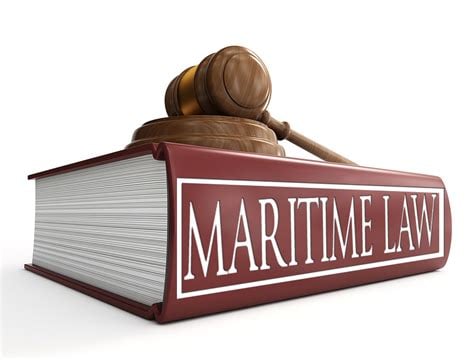
Introduction: Ahoy There, Readers!
Welcome to the vast and fascinating realm of maritime law, where the oceans, ships, and their crews intertwine with legal principles. Whether you’re a seasoned sailor, a curious landlubber, or simply seeking knowledge, this comprehensive guide will navigate you through the complexities of law at sea.
As we embark on this legal odyssey, let us acknowledge the immense importance of maritime law in safeguarding the rights and responsibilities of those who venture upon the world’s waterways. It ensures order, fairness, and protection amidst the unpredictable and often perilous seas.
Section 1: The Scope of Maritime Law
1.1 Admiralty Law and Jurisdiction
Maritime law finds its origins in the ancient maritime codes, evolving over centuries to encompass a broad spectrum of legal domains. Its primary focus lies within admiralty law, which governs matters pertaining to navigation, shipping contracts, maritime torts (such as collisions and salvage), and the rights of seamen. Admiralty courts exercise exclusive jurisdiction over these maritime-related disputes.
1.2 Territorial Waters and International Law
The scope of maritime law extends beyond national boundaries, as it intersects with international law. The United Nations Convention on the Law of the Sea (UNCLOS) serves as the overarching framework for regulating activities in the world’s oceans, including the delineation of territorial waters, the establishment of economic zones, and the protection of marine resources.
Section 2: Maritime Contracts and Transactions
2.1 Charterparties and Bills of Lading
Charterparties are legal contracts governing the hire of vessels for the transportation of goods. They specify the terms and conditions of the agreement, including the responsibilities of the shipowner and the charterer. Bills of lading, on the other hand, are documents issued by carriers acknowledging the receipt of goods for shipment. They serve as evidence of title to the goods and govern the carrier’s obligations during transit.
2.2 Shipbuilding and Ship Sale Contracts
The construction and sale of vessels are governed by specialized maritime law. Shipbuilding contracts outline the specifications and terms of the ship’s design and construction, while ship sale contracts transfer ownership of the vessel from the builder or previous owner to a new buyer.
Section 3: Maritime Liability and Claims
3.1 Collisions and Salvage
Collisions between vessels are a common occurrence in the congested waters of the world. Maritime law establishes rules for determining liability and apportioning damages in such incidents. Salvage operations, involving the rescue of vessels or cargo from danger, also fall under maritime law’s purview.
3.2 Admiralty Torts and Limitation of Liability
Maritime torts encompass wrongful acts committed at sea. These include negligence, breach of contract, and personal injury claims. The concept of limitation of liability plays a significant role in maritime law, providing a cap on the amount of damages that vessel owners may be held liable for in certain circumstances.
Section 4: Maritime Table: Key Legal Concepts
| Concept | Description |
|---|---|
| Admiralty Jurisdiction | Courts with exclusive jurisdiction over maritime matters |
| Charterparty | Contract governing the hire of vessels |
| Bill of Lading | Document acknowledging receipt of goods for shipment |
| Shipbuilding Contract | Agreement for the construction of a vessel |
| Ship Sale Contract | Agreement transferring ownership of a vessel |
| Collision | Incident involving the impact of two or more vessels |
| Salvage | Rescue of vessels or cargo from danger |
| Admiralty Tort | Wrongful act committed at sea |
| Limitation of Liability | Cap on the amount of damages vessel owners may be held liable for |
Section 5: Conclusion
Ahoy there, readers! As our maritime legal voyage nears its end, we invite you to delve deeper into the captivating world of the seven seas. Explore our other articles on specific maritime topics and discover the legal currents that shape the vast expanse of the ocean.
Remember, the open waters are not void of law but governed by a complex and fascinating legal framework. Embrace the adventure, navigate the currents of maritime law, and ensure your rightful course upon the boundless realm of the seas!
FAQ about Maritime Law
What is maritime law?
Answer: Maritime law is a specialized area of law that governs the legal issues involving ships, sailors, and the sea.
What are the main branches of maritime law?
Answer: The main branches of maritime law include admiralty law (which deals with disputes over vessel accidents and maritime contracts), marine insurance law, and international maritime law.
What is the difference between admiralty law and maritime law?
Answer: Admiralty law is a subset of maritime law that specifically focuses on disputes related to vessel operations, maritime commerce, and navigation on navigable waters.
Who enforces maritime law?
Answer: Maritime law is enforced by a variety of legal authorities, including national courts, specialized maritime courts, and international tribunals.
What is general average?
Answer: General average is a legal doctrine that allows ship owners to share the costs of losses incurred to protect the common interests of all parties involved in a maritime adventure.
What is salvage?
Answer: Salvage refers to the recovery of a ship or cargo that has been abandoned or damaged at sea. Under maritime law, the rescuers are entitled to compensation for their efforts.
What is the role of maritime law in international trade?
Answer: Maritime law plays a crucial role in facilitating international trade by providing a legal framework for shipping contracts, maritime liability, and dispute resolution.
What are the major international maritime conventions?
Answer: Key international maritime conventions include the United Nations Convention on the Law of the Sea (UNCLOS), the International Convention for the Safety of Life at Sea (SOLAS), and the International Maritime Dangerous Goods Code (IMDG Code).
How does maritime law affect the rights of seafarers?
Answer: Maritime law protects the rights of seafarers by providing legal protections for their working conditions, wages, and health and safety.
What are the emerging issues in maritime law?
Answer: Emerging issues in maritime law include environmental protection, piracy, and autonomous shipping.